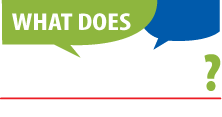Phrases starting with the letter: A B C D E F G H I J K L M N O P Q R S T U V W X Y Z
Definition of: people
(pē′pəl) noun plural ·ple or (for def. 1) ·ples
1. The aggregate of human beings living under the same government, speaking the same language, or being of the same blood: a general term, used when the technical terms race, tribe, nation, or language would be misleading: the people of England.
2. Ethnologically, a body of human beings belonging to the same linguistic stock and having the same culture.
3. The whole body of persons composing a state or nation, or that part of the population invested with political rights; the enfranchised: the people of the state.
4. Persons collectively: taking a verb in the plural: people say; also, bodies of persons classified according to their collective occupation or interest: literary people.
5. The commonalty, as distinguished from the titled, the rich, or the learned; the populace: with the.
6. Those who are connected with one as subjects, attendants, kinfolk, etc.; formerly, all the Negro slaves belonging to one family.
7. Animals collectively: the ant people.
8. Human beings; also, a collection of company.
—chosen people The Israelites.
—good people In Ireland, fairies: also little people.
—v.t. ·pled, ·pling To fill with inhabitants; populate. [<AF people, poeple <L populus the populace]
—peo′pler noun Synonyms (noun): commonwealth, community, folk, nation, population, race, state, tribe. A community is the aggregate of persons inhabiting any territory in common and having common interests; a commonwealth is such a body of persons having a common government, especially a republican government; as, the commonwealth of Massachusetts. A community may be very small; a commonwealth is ordinarily of considerable extent. A people is the aggregate of any public community, either in distinction from their rulers or as including them; a race is a division of mankind in the line of origin and ancestry; the people of the United States includes members of almost every race. The term people is used ethnologically to mean folk having the same linguistic and cultural origins, the same customs, traditions, and beliefs, and usually the same geographic distribution: as distinguished from political affiliations or physical origins. The population of a country is simply the aggregate of persons residing within its borders, without reference to race, organization, or allegiance; unnaturalized residents form part of the population, but not of the nation, possessing none of the rights and being subject to none of the duties of citizens. In American usage state signifies one commonwealth of the federal union known as the United States. Tribe is now almost wholly applied to primitive peoples with primitive political organization; as, the Indian tribes; nomadic tribes. Compare MOB, STATE.

Comment about this word, ask questions, or add new information about this topic: